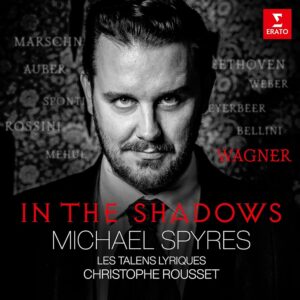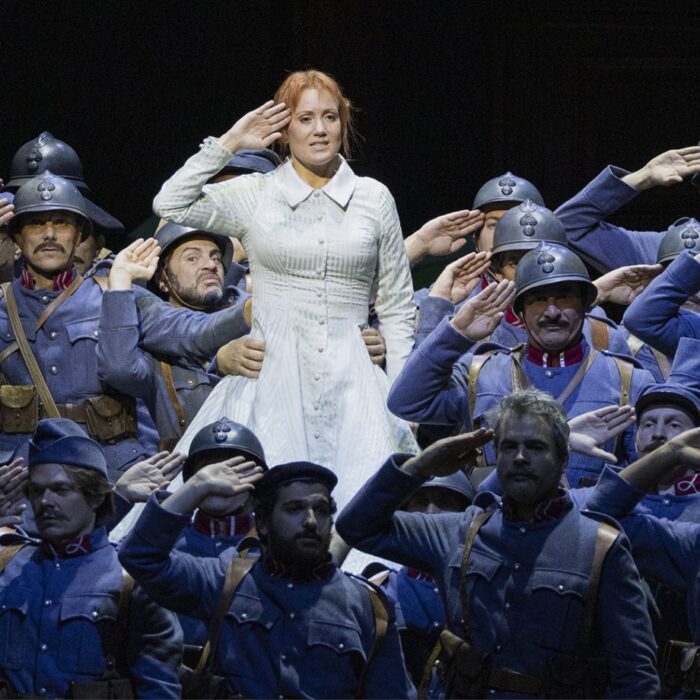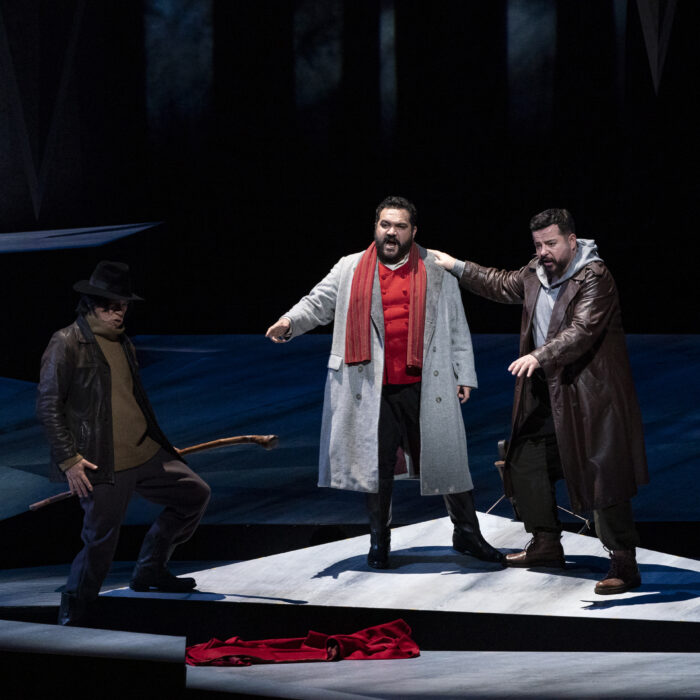
CD Review: Michael Spyres’ ‘In the Shadows’
By Bob Dieschburg“In the Shadows” is the title of baritenor Michael Spyres’ latest solo recital for Erato and Warner Classics. It traces a musical genealogy from Méhul, Weber, and Auber to the Romantic period of Wagner whose “Rienzi” and “Lohengrin” are, to various extents, the culmination point of the artistic developments since the early 19th century.
Musical Ancestry
The program is certainly ambitious and unusual in its combination of multiple repertories. Warhorses like “Meco all’altar di Venere” and “Gott! Welch Dunkel hier!” go hand in hand with a seemingly obscure aria from Spontini’s “Agnes von Hohenstaufen.”
Unsurprisingly, it also includes some Meyerbeer and Rossini whose works were well-known sources of inspiration to the young Wagner. Yet Spyres never veers towards the generic. He proves ever so versatile in delineating Wagner’s ancestral heritage, so to speak, and in infusing its variety with his kaleidoscopic timbre and interpretational nuance.
In addition, Spyres is a real polyglot; his clarity of diction makes the texts unfailingly intelligible, even if his German and Italian have a slight edge over the French. For instance, he navigates the sinuous lines of the Belcanto arias with just as much feel, if not philological insight as the prayer from “Rienzi” – and not coincidentally so. “In the Shadows” makes a point of pertinently showcasing the analogies, in terms of melodic buildup and even style.
Chiaroscuro
Thematically, the title-giving chiaroscuro is equally pervasive in creating links between the variegated landscape of 19th century topoi. As such, it is indeed tempting to suggest a direct lineage from Florestan’s prison scene to “Nein! Länger trag’ ich nicht” from Weber’s “Der Freischütz.” Spyres relishes their chromatic nuance and dazzles mostly in the soft, languishing lines of Florestan and Max’s Romantic Sehnsucht.
The American also impresses in low tessitura passages. In the shadowy or, in this case, funerary piece – “Suona funerea” from Meyerbeer’s “Il Crociato in Egitto” – he touches on his voice’s baritonal core which powerfully exceeds the coloristic effects of the traditional voix sombrée; it has plenty of body and is textured like a fully supported baritone.
Rousset and Les talens lyriques
Spyres is accompanied by Christophe Rousset at the helm of Les talens lyriques who customarily span the 200-year period between Monteverdi and Beethoven; rarely does the orchestra venture into the later repertoire of mainly French composers including Berlioz and Massenet.
This unfamiliarity, for want of a better word, may account for the somewhat atypical treatment of the Wagner arias which are not afforded the broadband treatment of the post-war years up until now. Rousset takes little interest in orchestral bombast; yet on the flip side he relentlessly draws out the tempi to their very slowest, making “Allmächt’ger Vater” clock in at a near-soporific 11 minutes and 11 seconds. For comparison, Donald Runnicles in his Decca recital from 2013 only takes nine minutes and 47 seconds, not to mention his earlier take with Ben Heppner.
Regardless, “In the Shadows” is a delight. It stands as a courageous attempt to reshuffle the repertory and embed it into an overarching perspective of historical continuity. For that, and its vocally flawless execution it must be ranked as one of Michael Spyres’ most validating recitals to date.
“In the Shadows” deserves every chance of being brought into the light.


